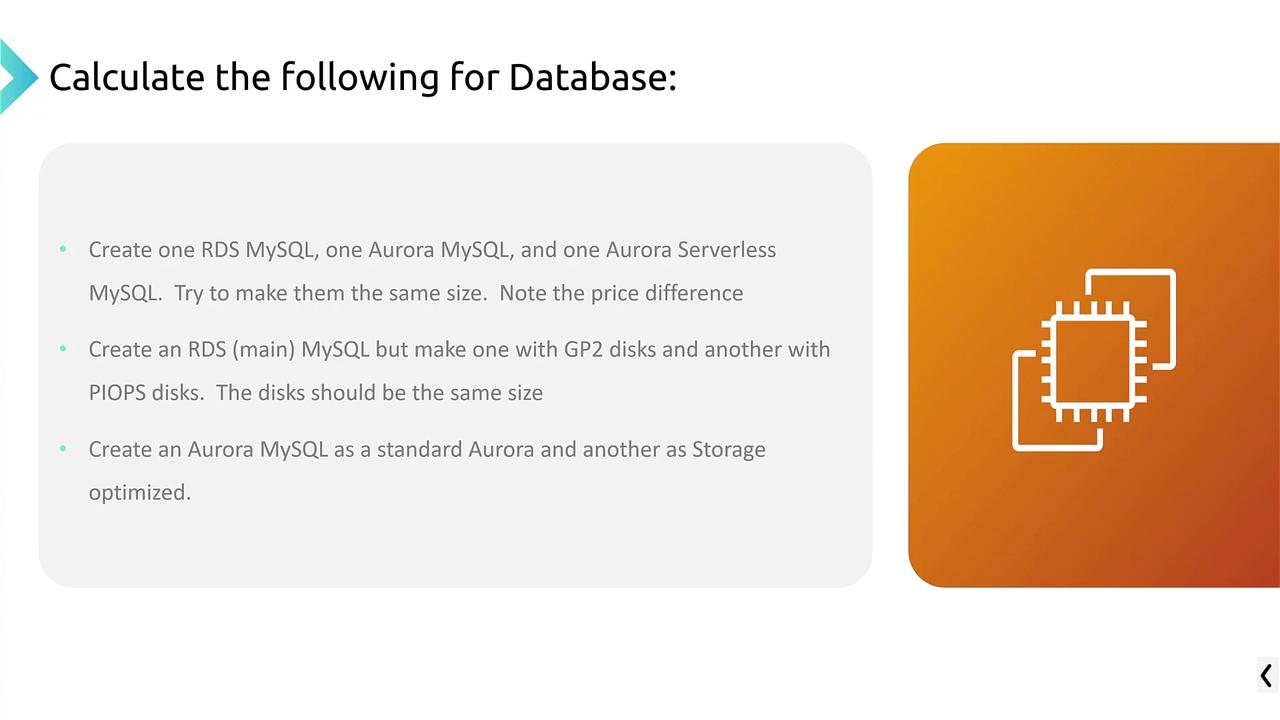Exercise Overview
Follow the scenarios below to complete the exercise:Scenario 1: Comparing RDS and Aurora MySQL Instances
Configure the following instances with identical sizes to ensure an accurate cost comparison:- One RDS MySQL instance
- One Aurora MySQL instance
- One Aurora Serverless MySQL instance
Using the same instance size across all configurations will help you clearly see the pricing differences.
Scenario 2: Evaluating Storage Options for RDS MySQL
Create two standard RDS MySQL instances with equal disk sizes:- One instance using GP2 disks
- One instance using Provisioned IOPS disks
Scenario 3: Analyzing Aurora MySQL Storage Configurations
Set up two Aurora MySQL instances to compare different storage models:- One standard Aurora MySQL instance
- One storage-optimized Aurora MySQL instance

These exercises are designed to familiarize you with the AWS Pricing Calculator by encouraging hands-on experimentation with various configurations.